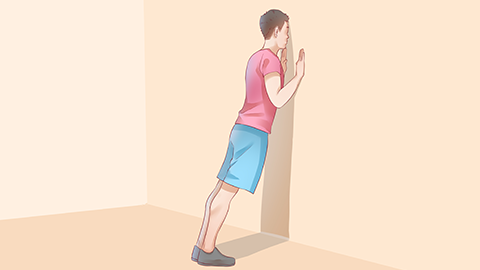What causes cramping in the left calf?
Generally, left calf cramps may be caused by overexertion, cold exposure, calcium deficiency, lower extremity varicose veins, lumbar disc herniation, and other factors. If discomfort occurs, timely medical consultation is recommended. Detailed explanations are as follows:
1. Overexertion
During prolonged or high-intensity exercise, frequent contractions of the left calf muscles can lead to muscle fatigue and accumulation of local metabolic products, making cramps more likely. Adequate warm-up before exercise and stretching of the left calf muscles afterward can help relieve muscle tension. Control the duration and intensity of exercise to avoid excessive fatigue. Replenish fluids and electrolytes promptly after exercise, such as drinking lightly salted water.
2. Cold Exposure
When the left calf is exposed to cold stimulation, the muscles may contract strongly due to the cold, causing cramps, which may occur at night or in cold weather. Keep the left calf warm, add clothing promptly according to temperature changes, and avoid staying in cold environments for long periods. Soaking feet in warm water before bedtime can help improve blood circulation in the left calf and reduce the occurrence of cramps.

3. Calcium Deficiency
When the body lacks calcium, muscle excitability increases, easily causing cramps and spasms in the left calf muscles, often accompanied by symptoms such as leg weakness. Increase daily intake of calcium-rich foods, such as milk, soy products, and shrimp skins. If necessary, take calcium supplements under a doctor's guidance, such as calcium carbonate D3 tablets, calcium gluconate tablets, or calcium lactate granules. Additionally, get appropriate sun exposure to promote calcium absorption.
4. Lower Extremity Varicose Veins
Varicose veins in the lower extremities can cause poor venous blood return in the left calf, leading to blood accumulation in the lower limbs, potentially causing muscle hypoxia and inducing cramps, accompanied by symptoms such as leg swelling and bulging veins. Medications such as Venoruton tablets, Diosmin tablets, or Hesperidin flavonoid tablets may be used under medical guidance to improve venous congestion. Avoid prolonged standing or sitting in daily life; elevate the left calf appropriately during rest, and consider wearing medical compression stockings to assist in improving blood circulation.
5. Lumbar Disc Herniation
Lumbar disc herniation may compress the nerves that innervate the left calf, causing abnormal nerve discharges, leading to left calf cramps, possibly accompanied by low back pain and leg numbness. Medications such as ibuprofen sustained-release capsules, mecobalamin tablets, and vitamin B1 tablets may be used under medical supervision to relieve nerve compression and inflammation. Maintain correct sitting and standing postures, avoid heavy lifting on the waist, and perform appropriate back and abdominal muscle exercises. Regularly follow up on lumbar spine conditions, and if symptoms worsen, seek further treatment as directed by a physician.
In daily life, maintain a balanced diet to ensure adequate nutrition and engage in appropriate left calf muscle exercises to strengthen muscle strength.










